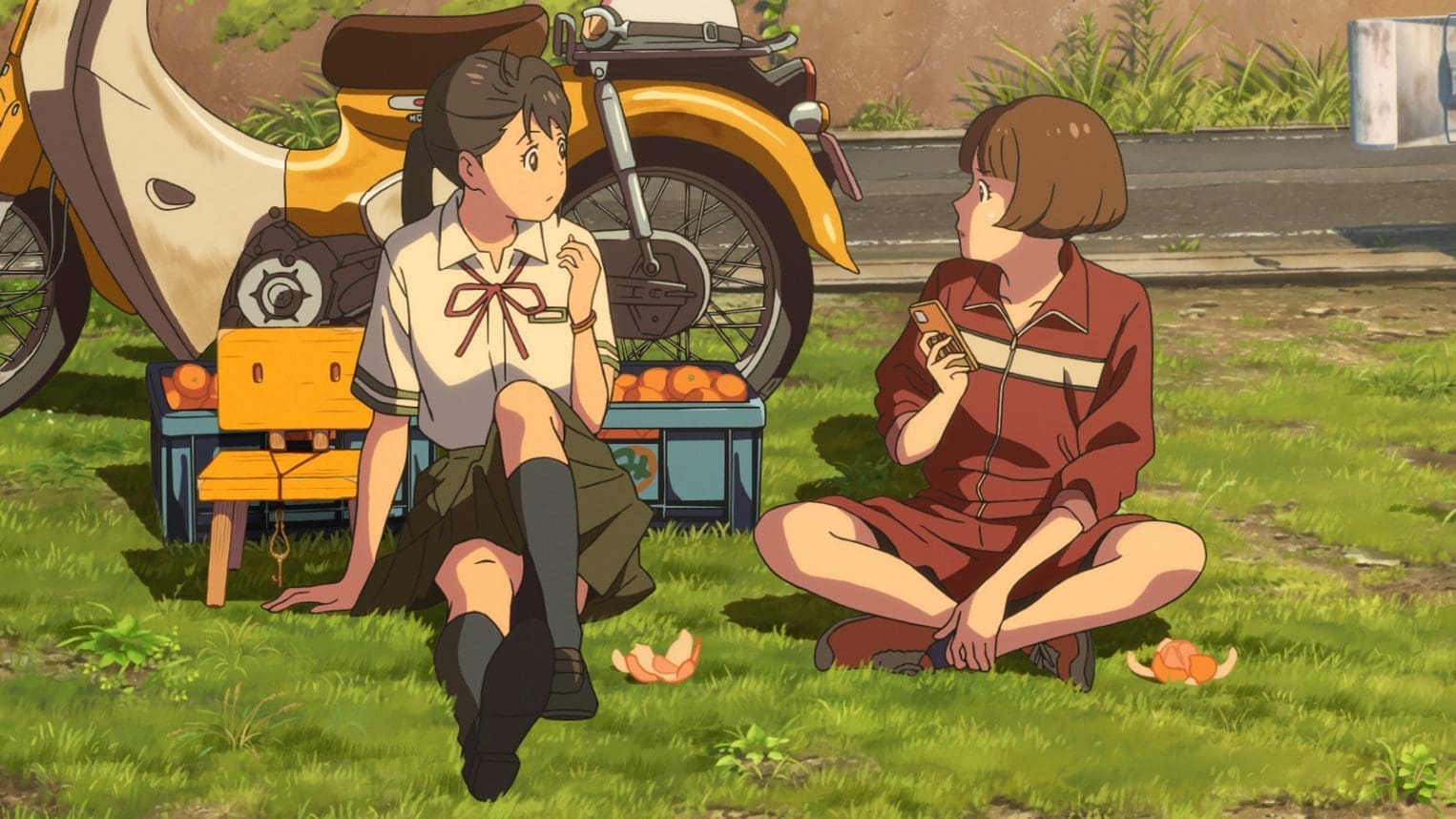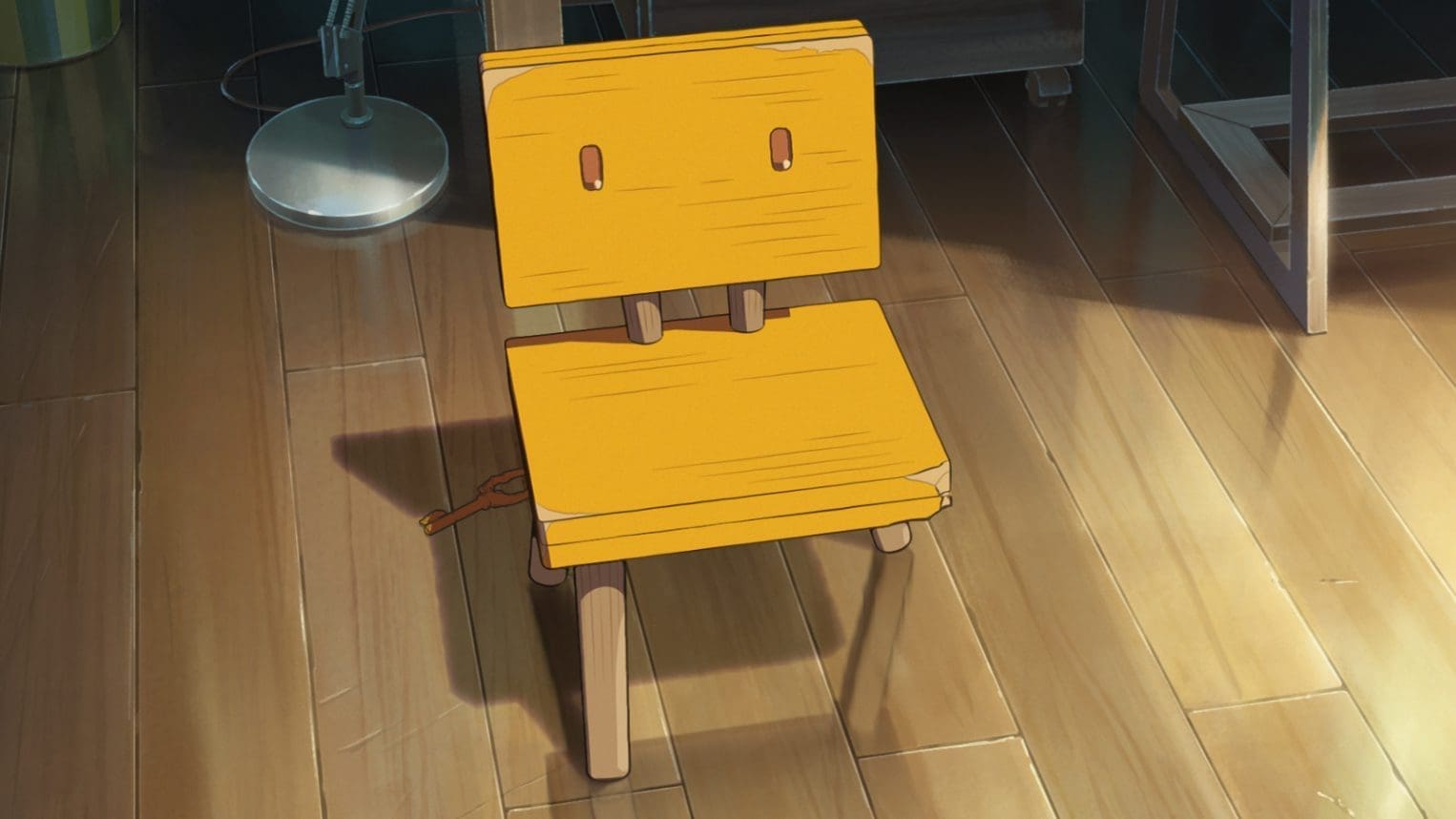Makoto Shinkai’s Suzume serves as a confirmation of not only his filmmaking credentials but also his status as this generation’s “Miyazaki”. His visual elements, thematic elements, and narrative composition all form a distinct style that is his alone. Though not as powerful as 2016’s Your Name, Suzume still demonstrates Shinkai’s mastery of his craft, and the result is nothing short of captivating.
Not surprisingly, Suzume follows a similar theme in many of Shinkai’s animated films (Your Name, Weathering With You, 5 Centimeters Per Second); emotional stories focused on two young people learning about one another. Shinkai’s films portray the dramatic yet innocent aspects of adolescent life from the emotions of youth, and feeling insignificant to perceiving the greater universe, and the secrets it may withhold. This combination of the personal and universal in his work is what makes his movies so enchanting.
The 2011 Tōhoku earthquake and tsunami are brought to mind when reflecting on Suzume. In the interview with Shinkai, he discussed the contrast between the beauty of Japan and the horror of their natural disasters and how that inspired him to narrate this story. He further added that he felt a sense of guilt for attempting to use his art to convey what was experienced during this tragedy.
Suzume looks at the potential danger of earthquakes as if they were the work of the supernatural realm and imagines heroes who dedicate their lives to keeping the forces at bay. Shinkai somehow seamlessly links this idea to the process of growing up. It is possible to perceive the concept of not having control of your life at that age and attempting to find a way to be helpful to society, as akin to not having control of a natural disaster and searching for a way to lend a hand.

Suzume starts off like most Shinkai stories, introducing us to a little Japanese mountain town and a young person on the brink of a life-changing journey. In this case, it is Suzume (Nanoka Hara), who has been living with her aunt since the loss of her mother years ago. One day, while walking to school, Suzume is stopped in her tracks when she sees a boy, Souta (Hokuto Matsumura), who is looking for a door. Instantly, Suzume feels an odd connection to the mysterious stranger with the long hair and is captivated by his looks.
Although she’s not sure why, Suzume follows Souta to an abandoned town where she discovers a door that leads to the world beyond ours: The Ever-After, a place of gods and souls where the boundaries of past, present, and future are blurred. Suzume doesn’t have much time to appreciate the sky since a powerful menace, known as the Worm, resides in the same realm. It is composed of blood-red tendrils and wishes to break through the doors in that realm and wreak havoc in our own. The mission of Souta is to locate these doors and close them before the Worm can escape. Unfortunately, something went awry and the two were forced to travel throughout the country to contain the creature. As a result, Souta was transformed into a chair.
Suzume follows a road trip formula for a great portion of the movie, with the main characters making stops and meeting people along the way. From Souta’s schoolmate Serizawa (Ryunosuke Kamiki) to the bar owner Rumi (Sairi Ito), the movie is enlivened by the addition of new characters. Although the journey is entertaining, Suzume does not quite reach a satisfying conclusion like Shinkai’s other works. The movie is essentially about Suzume finding a way to break away from her past, leaving those painful recollections behind and moving forward. The Ever-After and its multiple door entrances were clearly built for this theme, but it gets overshadowed by the numerous other storylines the narrative picks up along the way.

Between Suzume and her aunt, there is an intense argument that is concluded in a span of five minutes. Souta is burdened with some unclear, yet profound, distress. In the end, an intense battle with gods ensues and, of course, Souta and Suzume contemplate their love for each other. The conclusion of the story with Souta and Suzume appears to be underdeveloped. Such is commonplace in Shinkai’s movies and in anime in general, but since it is sandwiched between the other narrative elements, with Souta vanishing for a period of the film, their passionate declarations of love didn’t feel as impactful.
However, Shinkai took on a formidable task to prove that a faceless, three-legged wooden stool could be a source of connection for the audience. Their efforts were rewarded, with the animation of Souta’s chair form being incredibly endearing. Its clunky wooden movements were brought to life with an impressive range of emotions, from comedic to poignancy.
Shinkai’s knack for building a visually-stunning feature is as strong as ever with his partnership with RADWIMPS, but the conclusion is a bit jumbled. While the climax of the film is awe-inspiring, the accompanying dialogue is broad and not particularly linked to either Suzume or Souta’s own paths. Even if the ending doesn’t quite land, Suzume is still charming, with Shinkai’s signature dazzling animation, and a peculiar, yet sweet story about a young girl accepting her past.
About SUZUME
Synopsis: A modern action-adventure road story where a 17-year-old girl named Suzume helps a mysterious young man close doors from the other side that are releasing disasters all over Japan.
Directed, Screenplay, and Story: Makoto Shinkai
Character Design: Masayoshi Tanaka
Animation Direction: Kenichi Tsuchiya
Art Direction: Takumi Tanji
Production Company: CoMix Wave Films Inc.
Producing Company: STORY inc.
Cast: Nanoka Hara (Suzume Iwato), Hokuto Matsumura (Souta Munakata), Eri Fukatsu (Tamaki Iwato), Shôta Sometani (Minoru Okabe)
Rated: PG
Runtime: 2h 2m
Releases: April 14, 2023 (USA)
he/him • aapi • intj • geek • photographer • journalist • podcaster • martial artist • foodie • dj • cinephile • gamer • traveler





























